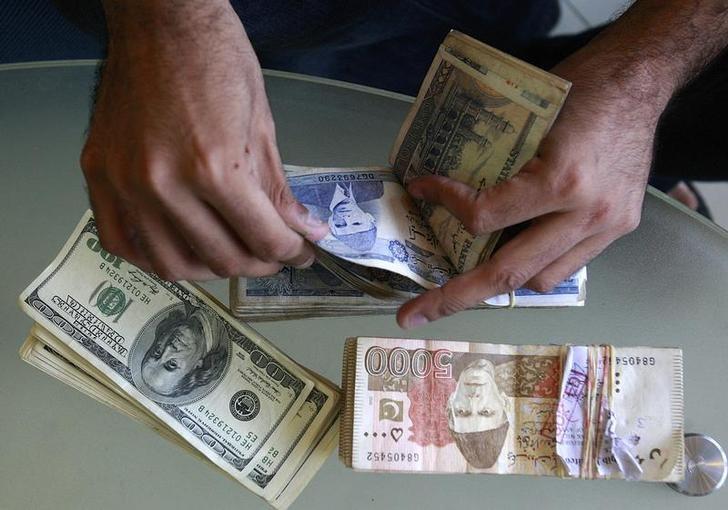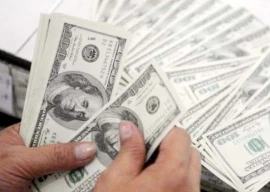
However, the rupee-dollar parity in the open market will largely depend on how the interbank and stock markets react at the start of the new week.
The rupee lost about Rs1 against the dollar on Friday and was seen trading at Rs109 in the open market following disqualification of Prime Minister Nawaz Sharif by the Supreme Court in the Panama Papers case.
However, it recovered and traded in the range of Rs108.20-108.70 on Saturday - a relatively low business day as banks remain closed, according to currency dealers.
“There is no big change in the rupee-dollar parity, but we have to wait for Monday for clarity,” Forex Association of Pakistan President Malik Bostan told The Express Tribune.
Currency dealers say the State Bank of Pakistan (SBP) intervened on Friday when the rupee briefly lost some ground as people feared that political uncertainty may eat into the rupee’s strength.
Similar to wild fluctuations in the KSE 100-share Index, Bostan said, the rupee also recorded variations in the open market on Friday, but it recovered by the time activity came to a close in the evening.
“The market is expected to stabilise over the next few days just like when former prime minister Yousuf Raza Gilani was disqualified by the Supreme Court,” he said.
The KSE-100 index fell 1,670 points or 3.6% after the disqualification verdict on Friday, but it recovered and closed 6.27 points or 0.01% higher.
Owing to Panama case-related developments, political uncertainty took the index to the year’s low at 43,783.55 points on July 13 from an all-time high of 52,876.46 points on May 24.
Exchange Companies Association of Pakistan General Secretary Zafar Paracha commented that people got panicked on such occasions and that was why some of them engaged in speculation. “We believe the rupee will recover quickly,” he said.
Since the ruling party was still holding power at the centre, the business community expected the government to continue to maintain the rupee-dollar parity, Paracha added.
Recent fluctuations
Pakistani rupee has shown relative stability against the dollar in recent years. However, on July 5, 2017, it lost 3.2% against the dollar - the biggest one-day loss since 2008.
Later, the currency recovered after former finance minister Ishaq Dar stepped in, saying certain elements were taking advantage of uncertain times in Pakistan’s politics and exploiting them as an opportunity to make money in the currency market.
The central bank has been supporting the rupee against the dollar by intervening in the open market for the past few years.
Dar has been a big supporter of a strong rupee and the ruling party has been trying to keep it stable since taking office in 2013.
However, leading exporters fiercely oppose this policy as they believe artificial support to the currency is creating problems for Pakistan’s exports at a time when regional competitors have devalued their currencies to support exports.
Analysts say the government has recently come under pressure to let the rupee depreciate because of a sharp rise in imports and fall in exports.
Published in The Express Tribune, July 30th, 2017.
Like Business on Facebook, follow @TribuneBiz on Twitter to stay informed and join in the conversation.
1672385156-0/Andrew-Tate-(1)1672385156-0-405x300.webp)
















COMMENTS
Comments are moderated and generally will be posted if they are on-topic and not abusive.
For more information, please see our Comments FAQ